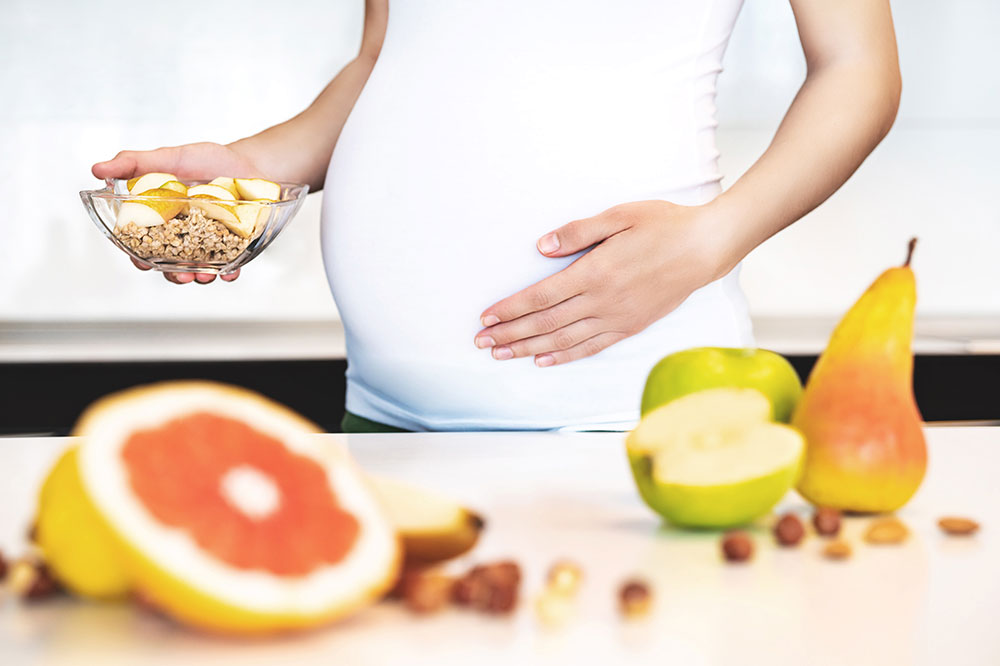Essential Nutrient-Dense Foods to Relieve Pregnancy Discomforts and Promote Fetal Health
Discover comprehensive nutrient-rich foods that can ease common pregnancy discomforts and support healthy fetal development. Incorporate eggs, fish, berries, whole grains, water, and pasteurized milk into your diet to promote well-being during pregnancy. Expert guidance ensures safe and effective nutrient intake, helping expectant mothers navigate pregnancy with better comfort and health.

Essential Nutrient-Dense Foods to Relieve Pregnancy Discomforts and Promote Fetal Health
Pregnancy is a transformative period filled with significant physical and emotional changes for women. Navigating these changes requires careful attention to diet and lifestyle practices that support maternal well-being and optimal fetal development. The right nutritional choices can alleviate common pregnancy discomforts such as nausea, fatigue, and heartburn, while also ensuring that both mother and baby receive vital nutrients needed for healthy growth. Incorporating a variety of nutrient-rich foods into your daily intake can make pregnancy more comfortable, manageable, and healthy.
Eggs
Eggs serve as a fundamental component of a pregnancy diet thanks to their rich protein content and healthy fats. They are an excellent source of choline, a nutrient crucial for fetal brain development and neural tube formation. Eggs are also versatile, easy to prepare, and packed with essential vitamins such as B12 and D, which support overall maternal health and energy levels. Consuming eggs regularly can help meet increasing nutritional demands during pregnancy and contribute to a balanced diet aimed at promoting healthy fetal growth.
Fish
Incorporating certain types of fish like salmon, mackerel, and sardines into your diet provides essential omega-3 fatty acids, specifically EPA and DHA. These fats are vital for the development of your baby's brain, eyes, and nervous system. Fish is also a rich source of high-quality protein and vitamin D, which boosts the mother’s immune system and strengthens bones. Eating 2 to 3 servings of fish weekly can significantly enhance fetal neurodevelopment and support maternal health, reducing the risk of postpartum depression and other complications associated with pregnancy.
Berries
Bright and delicious berries such as strawberries, blueberries, and raspberries are a powerhouse of antioxidants, vitamins, minerals, and plant compounds. They are particularly effective at combating pregnancy-related nausea, fatigue, and acid reflux. The high water content helps in staying hydrated, and their vitamin C content enhances iron absorption, preventing anemia. Regular consumption of berries can also support skin health and provide a natural way to boost immunity during pregnancy.
Whole Grains
Whole grains like oats, brown rice, quinoa, and whole wheat bread are excellent sources of complex carbohydrates, fiber, vitamins (notably B-vitamins), and minerals such as iron and magnesium. These foods are vital for maintaining steady energy levels throughout pregnancy and reducing the risk of gestational fatigue and complications like anemia. The fiber aids digestion and helps prevent constipation, a common issue in pregnant women. Including whole grains in your diet promotes overall wellness and supports healthy delivery outcomes.
Water
Hydration plays a pivotal role during pregnancy. Drinking at least 8-10 glasses of water daily ensures proper circulation, nutrient transport, and waste elimination for both mother and fetus. Adequate hydration also helps prevent dehydration-related issues like headaches, dizziness, and swelling. In the later stages of pregnancy, water intake becomes especially crucial as the body’s demand for fluids increases, supporting amniotic fluid levels and kidney function. Sipping water consistently throughout the day can lead to improved comfort and health for expecting mothers.
Pasteurized Milk
Consuming pasteurized milk assists in providing abundant calcium, vitamin D, and protein necessary for developing strong bones and teeth in the fetus. It also supports the mother’s bone health and muscle function. The USDA recommends around three cups of low-fat or fat-free pasteurized milk daily during pregnancy to meet nutritional needs without excess saturated fats. It is essential to choose pasteurized options to prevent the risk of bacterial infections such as listeriosis, which could harm both mother and baby during pregnancy. Drinking milk regularly can be a simple way to meet multiple nutritional demands simultaneously.
By integrating these nutrient-dense foods into your daily diet, you can effectively manage common pregnancy discomforts while ensuring optimal fetal development. Remember, a well-balanced diet not only promotes physical health but also enhances emotional well-being, making your pregnancy journey smoother and more enjoyable. Always consult with your healthcare provider before making significant dietary changes to tailor nutritional intake to your specific needs.





